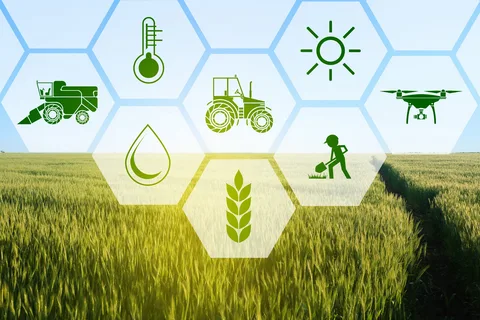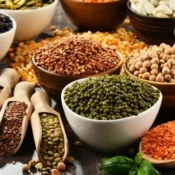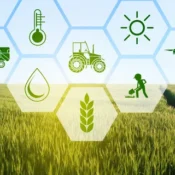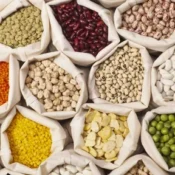How Agricultural Policies Affect the Trade of Rice and Legumes
Agricultural policies play a crucial role in shaping the trade of rice and legumes, both locally and internationally. These policies directly affect production, marketing, exports, and imports, thereby determining the competitiveness of farmers and companies in this sector. Below are some of the key ways in which agricultural policies impact the trade of rice and legumes:
1. Agricultural Subsidies and Support
Governments in many countries provide financial support to farmers through direct or indirect subsidies. These subsidies may include:
- Crop price support: Such as subsidizing the price of rice or legumes to enable farmers to receive fair returns.
- Input subsidies: Supporting the prices of fertilizers, pesticides, or water, reducing production costs and increasing productivity.
These subsidies help enhance the ability of farmers to produce larger quantities at lower costs, making their products more competitive in both local and international markets.
2. Trade Policies
Trade policies regulate exports and imports and play a major role in determining the ability of agricultural products to reach foreign markets. Key policies include:
- Tariffs: Import taxes that can protect local products from foreign competition but may also raise the cost of importing rice or legumes.
- Export restrictions: Some countries may impose restrictions on exporting rice or legumes to ensure domestic food security, limiting the ability of exporters to enter global markets.
3. Environmental Regulations
The trade of rice and legumes is increasingly affected by environmental regulations aimed at achieving sustainable development and protecting the environment. These regulations may include:
- Limits on pesticide and chemical fertilizer use: Regulations that restrict the use of chemicals in agriculture can impact crop productivity and, consequently, market supply.
- Promoting organic farming: Some governments encourage the adoption of organic farming practices that target niche markets. This type of farming requires supportive policies in terms of training and subsidies.
4.Food Security Policies
Food security policies play a central role in determining the production and trade of rice and legumes. Some countries rely on large reserves of these crops to ensure their availability during crises or food shortages. Therefore, policies may restrict exports or incentivize local production to achieve self-sufficiency, which in turn affects global trade flows.
5.Investment in Agricultural Infrastructure
Agricultural policies that promote investment in agricultural infrastructure, such as irrigation, transportation, and storage, significantly impact the trade of rice and legumes. Improved infrastructure helps:
- Reduce waste: By enhancing storage and transport systems, ensuring that products reach markets in high quality.
- Increase efficiency: By improving access to markets and opening new export channels, contributing to greater competitiveness.
6.Agricultural Research and Development
Governments play a major role in funding and encouraging agricultural research aimed at improving the productivity of rice and legumes. Policies supporting the development of new drought- and disease-resistant varieties help improve productivity and reduce costs, increasing the competitiveness of products in the market.
7.International Cooperation and Trade Agreements
Policies related to international cooperation contribute to enhancing trade between countries. Trade agreements that remove tariff barriers or provide exporters with facilitations may open new markets for local producers. For instance, free trade agreements between countries can boost the export of rice and legumes to new markets.
Conclusion
Agricultural policies greatly shape the trade of rice and legumes by influencing production, exports, imports, and market dynamics. A country's ability to compete in the global market largely depends on the quality and efficiency of the agricultural policies implemented. These policies can either support economic growth or limit the ability of producers to compete in international markets.




